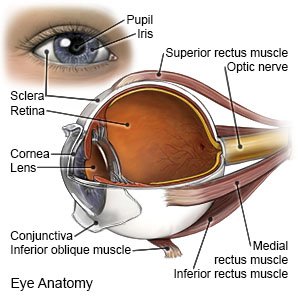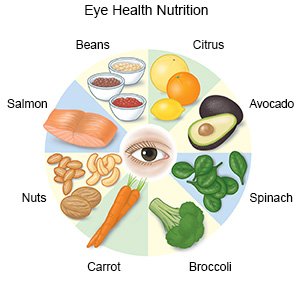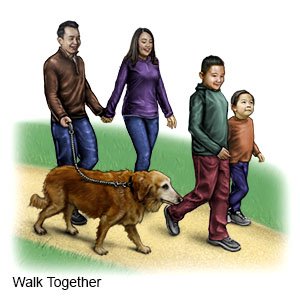Retinal Detachment
Medically reviewed by Drugs.com. Last updated on Aug 4, 2025.
AMBULATORY CARE:
Retinal detachment
is when your retina separates from the back of your eye. The retina is the thin layer of tissue that lines the back of your eye. It captures light and sends messages to the brain. Retinal detachment usually happens in 1 eye but may happen in both.
 |
Common symptoms include the following:
Symptoms usually happen suddenly. You may have any of the following:
- Seeing floaters, such as spots, cobwebs, strings, or specks
- Seeing flashes of light
- A dark or blind spot in the center of your vision
Call your doctor or ophthalmologist if:
- You have a sudden change in your vision or loss of vision.
- You have eye pain.
- You see more floaters or flashes of light than usual.
- You have questions or concerns about your condition or care.
Related medications
Treatment options
The following list of medications are related to or used in the treatment of this condition.
Treatment for retinal detachment
is often immediate surgery to reattach your retina. Many types of surgery for retinal detachment are available. Talk to your healthcare provider about which eye surgery is right for you.
Protect your vision:
- Get an eye exam as often as directed. Eye exams are done to check for or monitor diabetic retinopathy or other problems. Early diagnosis and treatment of eye problems may prevent permanent vision damage.
- Manage health conditions that can cause vision problems. Common examples include diabetes, high blood pressure, and high cholesterol. Follow up with healthcare providers who manage these conditions.
- Wear sunglasses with ultraviolet (UV) light protection. UV light from the sun can damage your eyes. It can increase your risk for vision loss.
- Eat foods that contain eye-healthy nutrients. Healthy nutrients include vitamin A, vitamin C, vitamin E, omega-3 fatty acids, lutein, and zeaxanthin. They can be found in foods such as spinach, peanuts, salmon, collard greens, avocados, squash, eggs, and blueberries. Ask your healthcare provider for a full list of foods that contain eye-healthy nutrients. You may also need to take a vitamin or supplement to help you get enough of these nutrients.

- Exercise as directed. Ask your healthcare provider about the best exercise plan for you.

- Do not smoke. Nicotine can damage blood vessels in your eyes. Do not use e-cigarettes or smokeless tobacco in place of cigarettes or to help you quit. They still contain nicotine. Ask your healthcare provider for information if you currently smoke and need help to quit.
Follow up with your doctor or ophthalmologist as directed:
You will need to return for an eye exam to make sure your retina is healing. Write down your questions so you remember to ask them during your visits.
© Copyright Merative 2025 Information is for End User's use only and may not be sold, redistributed or otherwise used for commercial purposes.
The above information is an educational aid only. It is not intended as medical advice for individual conditions or treatments. Talk to your doctor, nurse or pharmacist before following any medical regimen to see if it is safe and effective for you.
Learn more about Retinal Detachment
Treatment options
Care guides
Further information
Always consult your healthcare provider to ensure the information displayed on this page applies to your personal circumstances.
